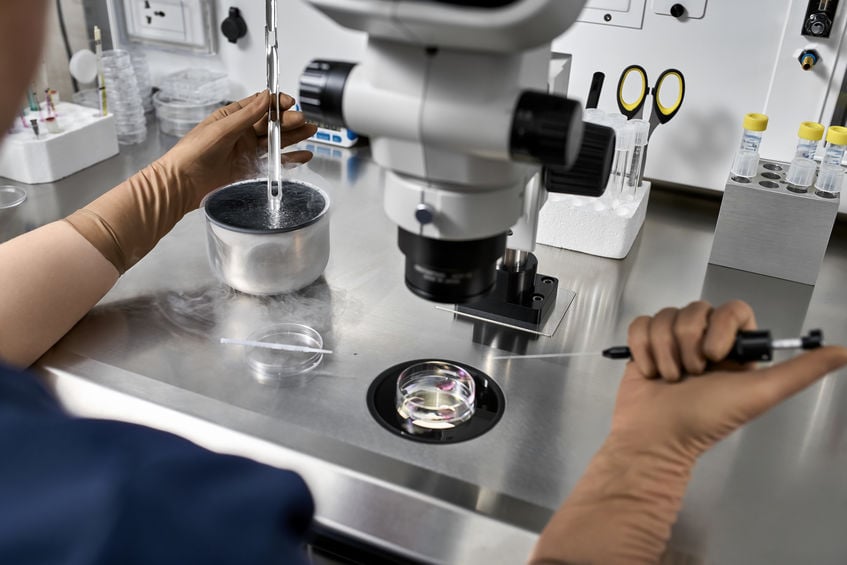Assessing Chromosomes With PGT
When a baby is conceived, the fetus should get 23 chromosomes from the mom and 23 from the dad. However, in some cases, the baby ends up with an extra or missing chromosome, which can lead to miscarriage or conditions such as Down syndrome. Patients undergoing in vitro fertilization (IVF) can screen for various chromosomal problems before selecting an embryo for transfer. Preimplantation genetic testing (PGT) can help increase IVF success rates and decrease possible health risks.

What is PGT?
Preimplantation genetic testing is a procedure performed on embryos obtained for IVF. There are 3 different types of PGT currently available. PGT-A screens for certain chromosome abnormalities, such as Down syndrome and Turner syndrome. PGT-M looks for single gene conditions that can be passed down to the baby, like cystic fibrosis (CF) or sickle cell anemia. PGT-SR is performed less commonly when the patient has a known rearrangement in the chromosomes, such as a translocation. PGT-A can be performed during any IVF cycle, but patients should have a clear understanding of the risks and benefits. The other 2 forms of PGT are only performed when the parents have an abnormal genetic testing result, and the embryo is at increased risk of inheritance.
Testing embryos
During IVF, women take medications to stimulate egg growth. The mature eggs are then retrieved and combined with sperm in the lab to create an embryo. The embryos spend a few days in the lab, dividing and growing. PGT is typically performed on Day 5 blastocysts and involves the removal of 5-6 cells for analysis. The results can take 1-2 weeks to come back after the biopsy. Once the results are available, the patient can decide which embryo to transfer back into the uterus in hopes of successful implantation.
Benefits of PGT
The main benefit of PGT is knowing that the embryo selected for transfer is genetically healthy. For IVF patients who have often experienced previous losses or years of infertility, peace of mind can be huge when undergoing fertility treatment. Embryos that are tested using PGT and found to be normal are less likely to result in miscarriage. Additionally, chromosomal problems, such as Down syndrome, which are associated with lifelong health struggles, can be ruled out. Parents with a genetic disorder can rest assured knowing the embryo selected for transfer is not at risk for the same condition.
Test and transfer confidently
Adding PGT to a standard IVF cycle can make a big difference. This simple test does not cause harm to the early embryo, decreases the risk of miscarriage, and helps parents-to-be select the healthiest egg and sperm combination for transfer. With PGT, fertility patients can rest assured that many genetic conditions are unlikely to occur.





